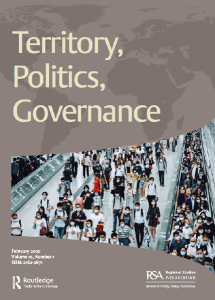New chapter in Routledge book on Africa’s Railway Renaissance: The role and impact of China

Abstract
China’s keen interest in constructing railways in Africa has been lauded by many as conducive to contemporary African regionalisms that are aimed at boosting intra-African trade and regional value chains. Yet, the railway-regionalism nexus is more complex and contradictory than it appears at first sight. Drawing on expert interviews and various primary and secondary data, this chapter identifies three sets of contradictions in the multi-scalar spatial political economy of Africa’s recent railway renaissance that complicate the latter’s regionalisation and curtail its impact on regional integration. First, it is shown that the globalism underpinning China’s Belt and Road Initiative (BRI) and the initiative’s predominant spatial logic of integrating African territories into China-centred, transregional value chains are not necessarily compatible with contemporary, more “inward-oriented” regionalisms advanced by the African Union, notably the African Continental Free Trade Area (AfCFTA). A second set of contradictions is owed to the fact that – despite much regionalist rhetoric and ambition – railway projects have been determined by national priorities and politics and marked by inadequate regional coordination and harmonisation, as an analysis of railway politics in the Southern African Development Community (SADC) and the East African Community (EAC) reveals. Third, this chapter demonstrates that, in the case of East Africa’s ongoing “railway race”, Kenya’s and Tanzania’s competing state spatial strategies have exacerbated disintegrating tendencies in the EAC and have resulted in a regional railway patchwork and contestation from actors who have lost out from changing regional transport economies. This chapter concludes that the regional impact of Africa’s railway renaissance is compromised “from above” (the global scale) and “from below” (the national scale), with both globalist and nationalist logics ultimately undermining recent, “inward-oriented” regionalism in Africa.

